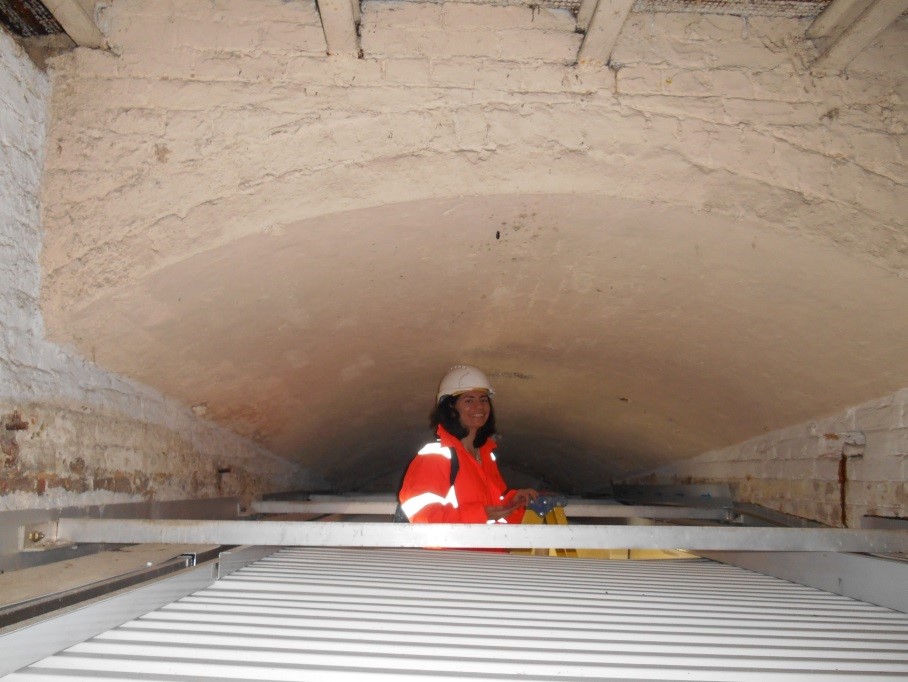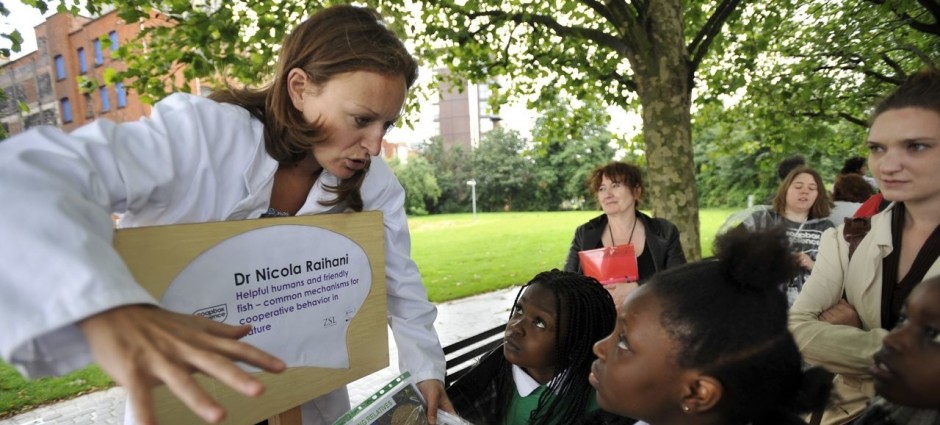 Dr Rosti Readioff (@Dr_Rosti), Postdoctoral research associate, Keele University, is taking part in Soapbox Science Stoke-on-Trent on 6th July with the talk: “From Silly Putty to Human Body”
Dr Rosti Readioff (@Dr_Rosti), Postdoctoral research associate, Keele University, is taking part in Soapbox Science Stoke-on-Trent on 6th July with the talk: “From Silly Putty to Human Body”
I am currently a postdoctoral research associate at Keele University, working on a research project in the biomedical engineering field. My project is focused on using assistive technologies to restore arm movement in paralysed people.
My STEM journey and how I started
I completed my secondary and high school education (GCSE and A-level equivalent) outside of the UK; needless to say that my STEM path started off very differently to most people studying in the UK. I studied all the science subjects including Biology, Chemistry, Physics, Maths, and three different languages. I really enjoyed science subjects, in particular Maths and Physics. To me, Maths was like playing numeric games, so I was always looking forward to my Maths classes. I liked Physics because it helped me understand the world around me.
Unlike most stories you might hear, I did not know what exactly I wanted to do for a career. However, I knew I enjoyed Maths and Physics more than others, hence I decided to study for a degree that involved both subjects. And this degree was Engineering. I studied for a Civil and Structural Engineering degree at the University of Liverpool, and the degree was four challenging years. In University, I was in a minority group and I felt responsible to be one of the best academically amongst my peers, hence I spent most of the time studying. If I were to do my undergraduate degree again, I would probably try to enjoy the experience a little more than feeling obliged to be one of the best.
At the end of my undergraduate degree, I was involved in a short research project which changed my perception towards engineering. The project exposed me to a new field of engineering, Biomedical and Biomechanics Engineering, which at the time I did not know much about. I found this newly discovered engineering field very exciting and full of opportunities for research. My passion to explore led me to study for a doctorate degree in this engineering field.
Why did you leave academia and come back to it?
Despite so many challenges, I believe the experience that came with studying for my doctorate degree has helped me grow as a scientist and an engineer. However, as a curious person I always wondered what work outside an academic environment was like. I, then, decided to leave the academic world after finishing my doctorate degree.
My first job outside academia was in a Civil Engineering company. My daily tasks were not directly relevant to my previous research, but it was relevant to my undergraduate degree. In this role, I enjoyed the new experiences and the real-life challenges that came with it. However, I felt I was not utilising the skills I gained during my doctorate degree and that was a big deal to me.

Here, I am in my first post-doctorate industry role and inspecting a train station subway!
Next, I decided to look for opportunities in industry that would better use my expertise. Subsequently, I got my second job at a research organisation where I was working as a research engineer. It was here where I learned so much about diverse and inclusive working environments and the importance of having well-thought core values to increase productivity. I decided to adopt their core values and implement them wherever I ended up working. Although the working environment was the best I had encountered, none of the work I was doing was directly relevant to biomedical and biomechanics engineering research. The organisation was research intensive but there were few opportunities to build upon my biomedical and biomechanics research background. Ultimately, I concluded that the best way for me to grow and establish as a researcher in this rapidly evolving engineering field was through an academic path.
Now, I am back in an academic environment where I focus on what I love doing, research in science and engineering. I believe studying STEM subjects greatly improved my career prospects and it helped me to move between industry and academia.
My recommendation for young people out there is to pick STEM subjects early on, however this does not mean you cannot change careers later. Or, you can mix STEM subjects with humanities to widen up your career prospects. Whatever you choose, remember to enjoy the experience!
